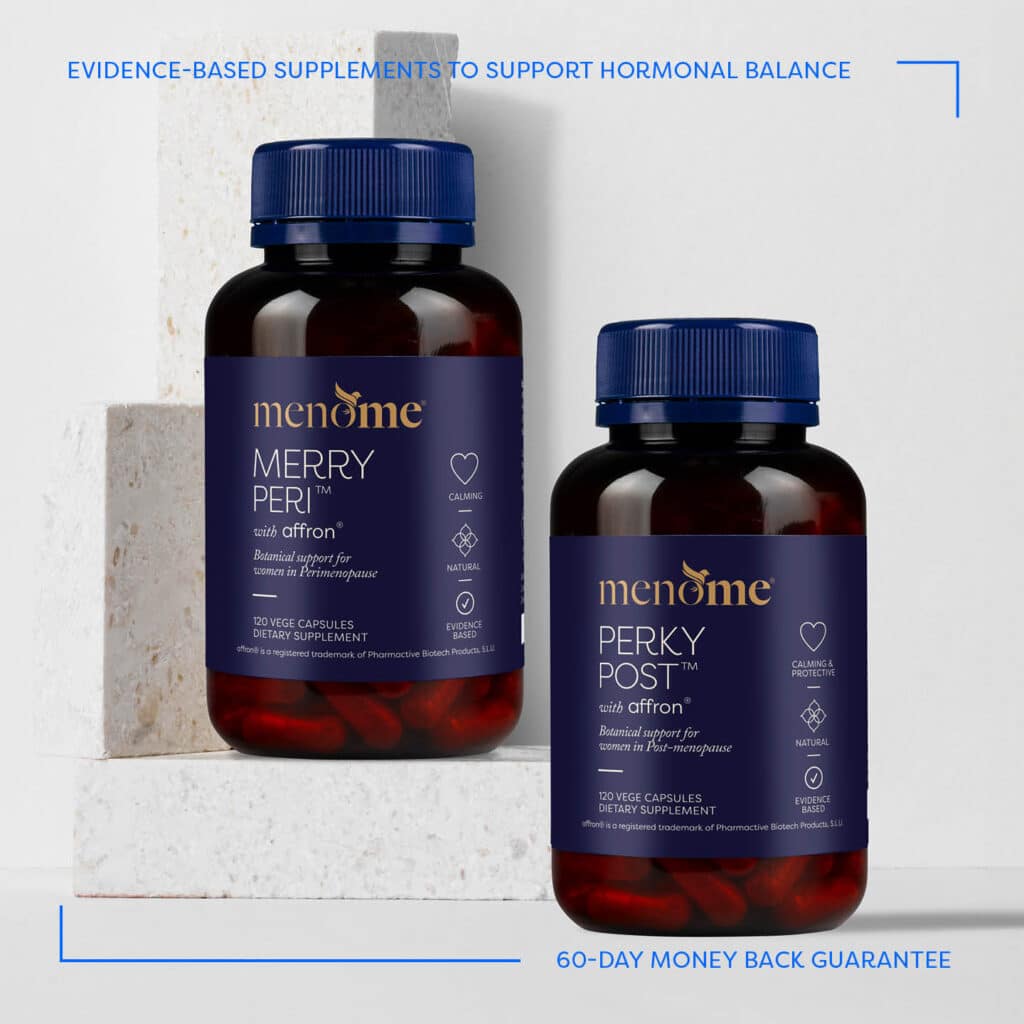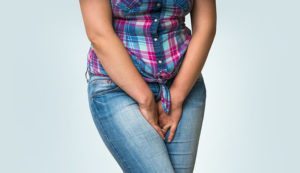One of the more frequent questions we get is centred around libido and, by association, vaginal dryness. But relationship woes and/or a sore va-jay-jay aren’t something we desire, are they?
However, in many cases, the two go hand-in-hand. (Oh dear!)
Not tonight darling I’ve got a headache
Indeed, a lack of libido can be due to declining levels of estrogen and sometimes androgens. Lower estrogen – our ‘juice’ hormone – can also lead to vaginal dryness and/or dyspareunia (painful intercourse). Couple that with mood swings, hot flushes, depression, anxiety, feeling ‘blah’ due to weight gain or urinary incontinence and you’ve got a perfect storm for ‘not tonight darling, I’ve got a headache’.
You’re not alone
If you can relate to these words you’re not alone even though it might feel that way, because it’s not something most people talk about.
However, if it’s any comfort, there are a lot of us out there. A study conducted by Professor Susan David at Melbourne’s Monash University Women’s Health Research Program paints a picture. The research showed that 70 percent of women aged 40-65 experience loss of interest in sex with 21 percent of those experiencing discomfort during or after intercourse from vaginal dryness. (Note: Given what I’ve learned from our community I wonder if that latter figure might actually be more!)
Related: listen to Menopause, Libido and Hormones
Research shows
Monash research found that sexual difficulties for women increase at midlife with the most common being:
– loss of interest in sex
– inability to relax
– painful sex (dyspareunia)
– arousal difficulties
– inability to orgasm (anorgasmia)
The University says: Women with vaginal dryness are more likely to experience painful sex, arousal difficulties, more frequent masturbation, and less physical and emotional sexual satisfaction. And an important observation – well, we think so – is that despite the reduction in desire and increase in pain seen, the frequency of sexual activity does not seem to change. (source).
Related: listen to Let’s Talk Va-jay-jay’s and bladders with Dr Mirjana Janjic
Different strokes for different folks
If you’re happy to let your sex life go, you’re not unusual either. As with most things in life its a case of different strokes for different folks. But even if – as far as you’re concerned – your sex life is over, it’s still important to keep your lady bits healthy. Vaginal dryness may lead to bladder infections or discomfort doing everyday things you enjoy. And who wants that?!
Why does our vagina & sex drive change?
Great question. As we grow older a natural decline happens with sex hormones like progesterone aka ‘nature’s Valium’ and ‘juicy’ estrogen.
As the quote marks suggest these have a lot to do with our sexual and pelvic health. So, as our levels reduce we may begin to experience decreased lubrication, lesser elasticity and an altered vaginal pH. This can lead to changes in odour and susceptibility to bladder infections, decreased pelvic floor strength and urinary incontinence.

So what’s a girl to do?
Psychologically:
De-stress
During menopause the adrenals take over a little bit from the ovaries when it comes to estrogen – and for the purposes of this discussion – testosterone. Adrenals are the home of cortisol, which is also known as the stress hormone. Some cortisol is healthy and essential to our everyday functioning. But if we get too much our sex hormones shut down and our sex drive nosedives.
Conquer depression
We know this is a tough call as it’s not quite that simplistic. However, many doctors prescribe antidepressants for women in midlife as a first point of call. According to all reports, the figures are staggering. Personally, I’ve found nutrition, exercise and mindfulness are far more effective at beating the ‘black dog’. However, the most important point here is that the side effects of antidepressant medications include lack of sexual desire. BUT we have an guess what update: get your gut health optimal and you’ll feel happier! True story so add some Happy Go Tummy® to your day.
Be kind to yourself
If you’ve put on weight or are feeling hot, sweaty and irritable the inner mean girl in your head is probably going to beat you up. That’s just what she’s like. “I’m so (insert word) at the moment, how on earth is John going to find me sexy?” Or “Argh, I want to scream at John right now, I definitely don’t want to get snuggly!” That’s when it might be a good idea to take yourself off for an Epsom salts bath (the magnesium in it is so good), or better yet a pampering session at the beauty therapist. And what about trying practising mindfulness? There really is wisdom is ‘oooommmmm’.
See a therapist
It might sound woo woo, but talk therapy can be beneficial when you’re experiencing tough times. There are many theorists who say that if you haven’t dealt with stuff earlier in life it will come out during midlife/menopause. I’m not sure of the statistics for that but I have seen it happen and have experienced it myself. Food for thought.
Talk to your partner
If you’re not feeling like getting it on, it can put a strain on relationships. And they’re not without their challenges at the best of times so it might be a great time to recognise and work on any underlying issues. Talk with your partner and explain what’s going on with you and your body. Feel free to use our library. Understanding from loved ones can be priceless during the meno years.
Physically:
Keep your estrogen as supported as possible
When estrogen is low we get moody and irritable. And when it’s too high (as is common during perimenopause) we can get bloated and gain weight – both libido killers. Lucky for you we have Merry Peri® and Perky Post® to help. The fenugreek in them has been shown to improve sexual function and libido AND vitamin D3 in Perky is great for vaginal health and may reduce vaginal dryness!
Have a full panel thyroid test
The thyroid is influential to every cell and system in the body including sexual health. Many women experience thyroid issues during the peri:menopause so it’s important to keep an eye on it. Thyroid disorders have often been implicated in sexual dysfunction and can also contribute to fatigue, weight gain, and depression. In fact, thyroid disease has been shown to cause loss of desire, painful sex and a lack of fantasies. For a full reading, you need your TSH levels checked along with your T3, T4 and antibody levels which a functional medicine doctor will provide. Most GPs only order TSH readings.
Look at your prescription medications
We’ve discussed antidepressant medication earlier and if you’re still taking birth control it’s a good idea to try and find an alternative. Birth control pills are designed to suppress various sex hormone processes, which makes the loss of sexual desire a pretty common side effect. They’ve also been associated with vaginal dryness.
Get nutrient savvy
Indulge in plenty of colourful vegetables for energetic vitality, sea vegetables for thyroid health, flaxseeds, good fats like extra virgin olive oil, avocado, nuts, seeds, and oily fish for lubrication, lean proteins, and whole grains. Avoid the ‘industrialised diet’ at all costs and processed foods, refined sugar, coffee, and alcohol. If you’re indulging in a lot of the latter it will cause blood sugar spikes, muck with your gut and liver and result in energy and mood crashes. Not ideal for getting your sexy on.
Exercise
Moving your body gets the blood and oxygen flowing to your body’s lady bits. It also helps fight off depression, strengthen your core (good for sexual satisfaction) and manage weight. The trick is not to overdo it – go too hard out and your cortisol will go through the roof causing your libido to crash and burn. Over-exercising can be super hard on a woman’s hormones, but walking, yoga, Pilates, LIIT (low intensity internal training) and small doses of HIIT (high intensity interval training) are essential to good health and a healthy sex drive.
Strengthen your pelvic floor
A strong pelvic floor doesn’t just help with urinary incontinence and leakage it can also help with sexual satisfaction and orgasm. Kegel exercises are helpful however many of us don’t perform them correctly.
Extra help for vaginal dryness:
Other helpers I suggest for vaginal dryness are supplementing with omega 3/6 oils (like fish oil, evening primrose oil or blackcurrant seed oil). Also, the topical application of coconut oil can be a lubrication aid (fractionated coconut oil is a drier – less oily/messy – form), and we like the natural lubricant Sylk
We hope implementing a few of these tools give you back your mojo. (Smile-y face.)
Let us know if this was helpful for you, and if you’d like some one-on-one help don’t hesitate to get in touch here.
Share with a friend
Sign up to our mailing list for the latest news and stories and receive a $5 discount code to redeem on your first purchase, plus receive a 3-step eBook on ways to support your body through menopause.
This site is protected by reCAPTCHA and the Google Privacy Policy and Terms of Service apply.
Related Articles
References:
- Sexual desire: https://www.ncbi.nlm.nih.gov/pubmed/18625925
- EstroG-100: https://www.ncbi.nlm.nih.gov/pubmed/21887807
- Vaginal Atrophy: https://www.ncbi.nlm.nih.gov/pubmed/6834616
- Sexual Functioning: https://www.ncbi.nlm.nih.gov/pubmed/19212271
Main photograph: Jasmine Wallace Carter via Pexels










